Mahler (1974) is a film that quite literally explodes into life — with a little help from that wonderful and terrifying outburst of sound late in the first movement of Mahler’s Tenth Symphony. Is it the best of Ken Russell’s composer biographies? I’m inclined to say yes. But even if it isn’t, it’s undoubtedly one of the finest films ever made on the life of a composer—or indeed any artist. When the film played briefly in a very limited number of cities in the U.S. in 1975, Christian Science Monitor critic David Sterritt said that Mahler “throbs with life.” Despite Sterritt’s enthusiasm, it polarized both critics and audiences. It’s that kind of film, and Russell’s that kind of filmmaker, which, of course, is partly why he’s one of the greats. Mahler is from Russell’s greatest period of filmmaking and is the start of what, for me, are his three greatest works: this, Tommy and Lisztomania (the latter two both from 1975). The three films form a kind of stylistic trilogy that push the boundaries of filmmaking to a degree that has rarely been equaled, and never been topped.
Made for very little money—about ₤160,000—Mahler is one of those rare chances to see a filmmaker at work without a net. It has been slated as a more ambitious co-production with Germany, but the Germans pulled out at the last minute, leaving Russell to shoot the film quickly and without leaving England. (Russell’s beloved Lake District in Cumbria ended up playing the Bavarian Alps, while the Bluebell Railway Preservation Society in Sussex provided a period train traveling a stretch of tracks about 11 miles long provided the setting for the framing story.) A professionally created film meant for theatrical release made for that amount of money (roughly half the cost of an hour-long U.S. TV show from the same era) is pretty much a do-it-yourself affair. Ironically, it would go on to win the Best Technical Achievement award at Cannes. Money isn’t everything.
The film is a deceptive work that looks at once complex and simple. On the one hand, it is very simple indeed. Gustav Mahler (Robert Powell) and his wife Alma (Georgina Hale) are on a train that is taking them back to Austria, following Mahler’s stint as conductor of the New York Philharmonic. Their marriage is not in good shape, nor is Mahler’s health, and as the trip progresses the two have memories and fantasies of what their lives have been—and of how they ended up in their current state. In other words, the film is an interweaving of memory and dreams and projections that’s given a form by a framing story. But this isn’t your normal framing story—and these certainly aren’t your usual flashbacks.
There’s a good deal more to the framing story than just a structure. Not only are the scenes on the train absolute marvels in technical terms (using wide-angle lenses and mostly natural light on an actual moving train afforded Russell some of his most beautiful images), but the content of the scenes is fully as important as the flashbacks. Nothing is without its point—even to the positions of the characters. While Mahler is constantly depicted looking away from the engine, Alma tends to be looking toward it. She has a future to look toward; he has not. When he finally seems to be looking forward, well…that belongs to the film.
The fantasies in the film are definitely startling—and that’s announced from the very beginning where Alma is depicted as a creature trying to emerge from a chrysalis on a stony beach, making her way toward a stone head of Mahler and kissing it. Later fantasies are sometimes very short interpolations that serve to delineate the characters—as when Alma is presented as being little more than Mahler’s shadow. Others—especially a lengthy sequence in which Mahler envisions his own funeral and the more controversial sequence where his conversion from Judaism to Catholicism is presented as a silent movie—are complex, elaborate affairs.
Not all of the fantasies are clearly defined as such. There’s a splendid scene early in the film that isn’t quite fantasy in the normal sense of the word, but which is certainly a stylized depiction of the event, where Alma runs about the countryside trying to quiet the sounds that are disturbing Mahler’s composing. It’s also a sequence that works on more than one level in that it’s a breathless depiction of the act of creation, but it’s also one of the film’s many instances that illustrate the subjugation of Alma as a person in her own right to the service of Mahler and his art, making the scene more than a simple celebration of creativity. It also recognizes the price that is often paid—not always by the creator himself—for that creativity.
One of the most moving and striking sequences in the film—where a heartbroken Alma has a “funeral” for a song she’s written—isn’t really a fantasy at all. Rather it’s a fantasticated memory—and interestingly, it’s not set to Mahler’s music, but to Richard Wagner’s “Liebestod” from Tristan and Isolde. Why not a Mahler composition? God knows, it’s not like there’s any shortage of funeral marches in the man’s symphonies. My take is that Alma’s not being let off the hook here for letting Mahler squelch her own dreams, and Russell’s conveying that by using a piece of music that is hardly shy of self-dramatizing.
There is so much to Mahler that it’s impossible to do it justice here. This is a deeply personal film. In some ways, it verges on the autobiographical. There are intimations of Russell’s own solitary childhood in the sequences with young Mahler (Gary Rich). The troubles in the Mahler marriage bear more than a passing resemblance to the ones in Russell’s own fraying marriage at the time. Moreover, it’s as much about Russell’s response to Mahler’s music as it is about Mahler. And for Russell, perhaps the cherry on the top was in getting to George Colouris as Mahler’s doctor in the last scene. Here was a chance to work with an actor who had been in Citizen Kane, one of his favorite films and one that had great impact on his approach to film. But all these things are part of the tapestry — nothing stands out as arbitrary — so that it’s all of a piece.
The Asheville Film Society is showing Mahler Wednesday, April 22, at 7:30 p.m. in at The Carolina Asheville as part of the Budget Big Screen series. Admission is $6 for AFS members and $8 for the general public. Special guest Lisi Russell (Ken Russell’s widow) will introduce the film with Xpress movie critics Ken Hanke and Justin Souther.



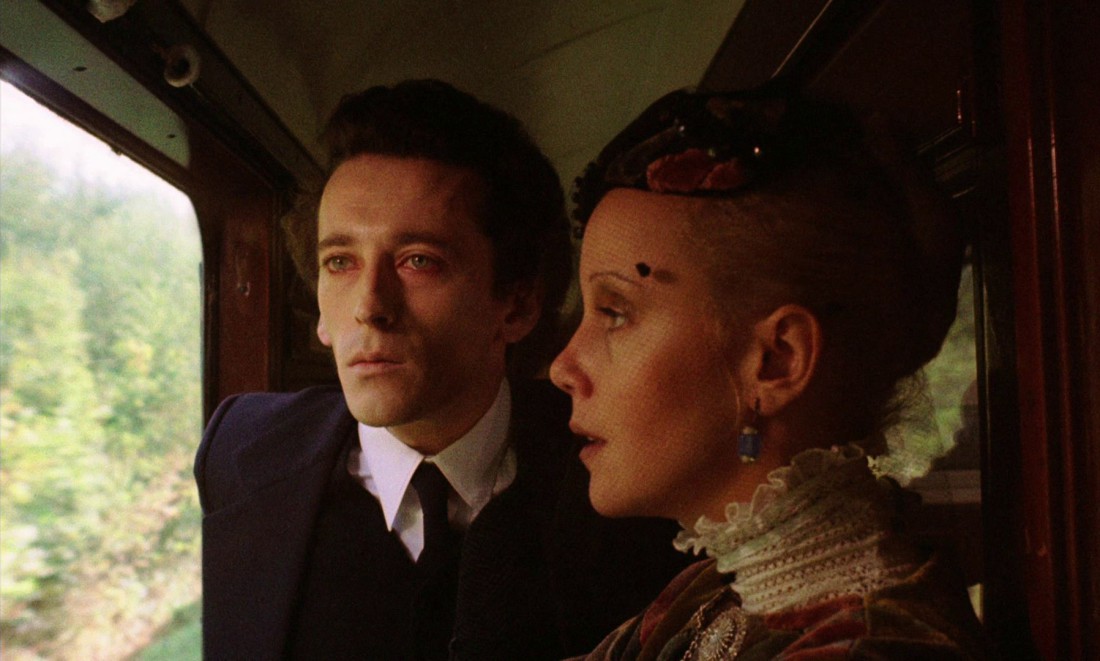


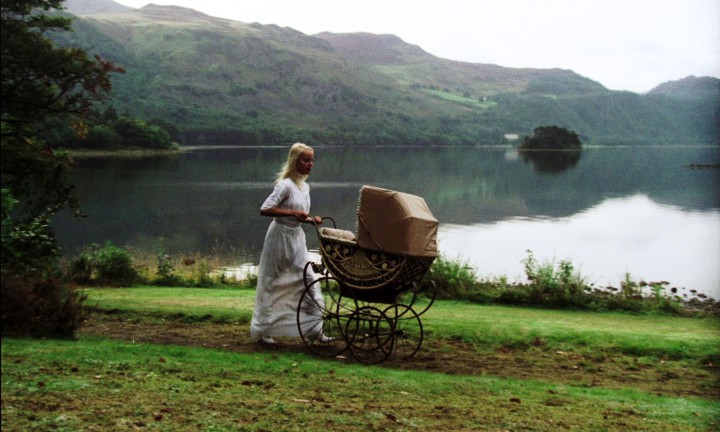
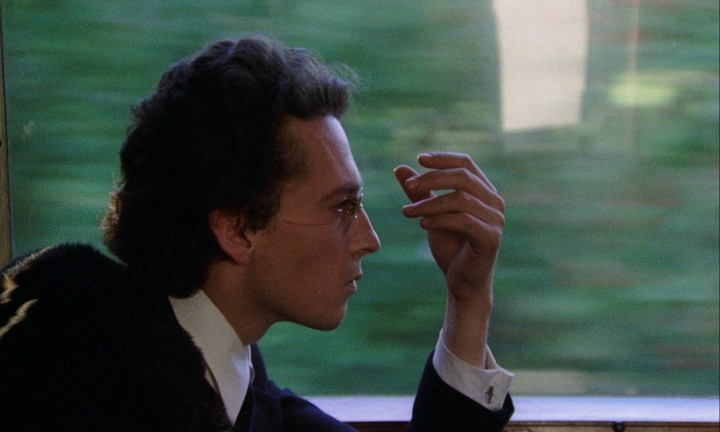
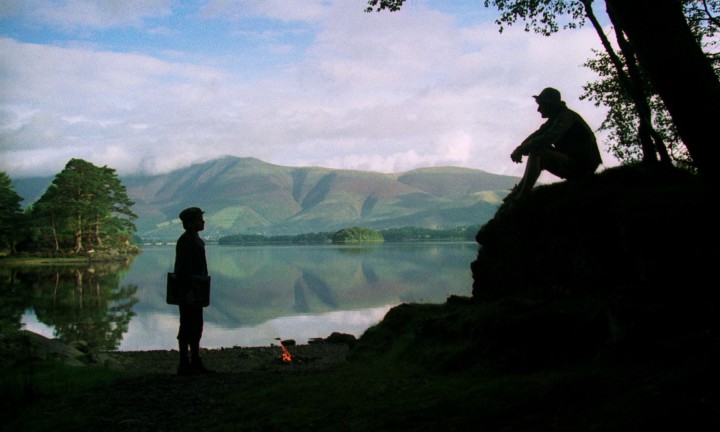
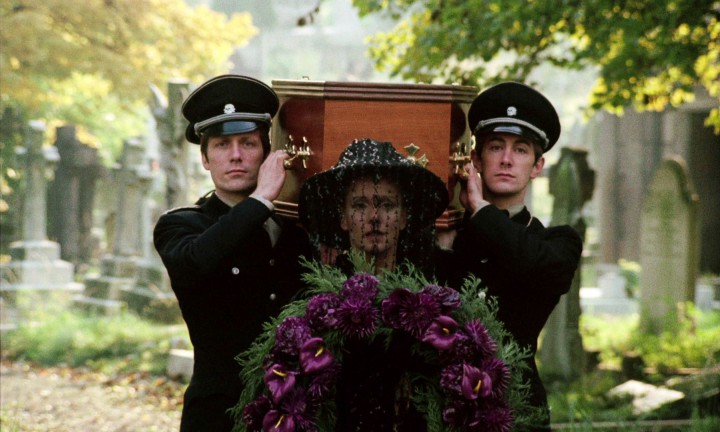
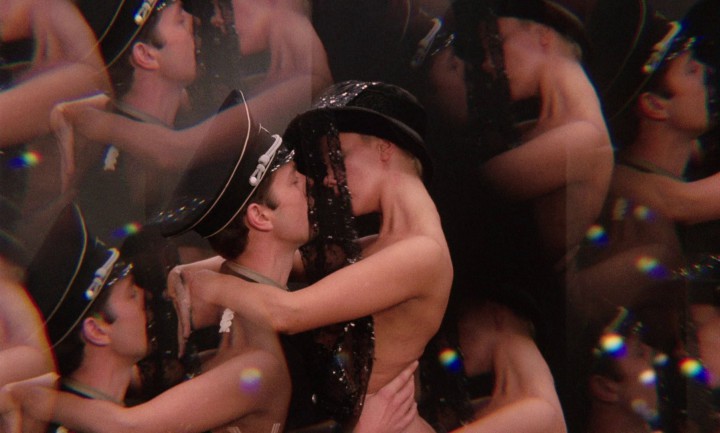
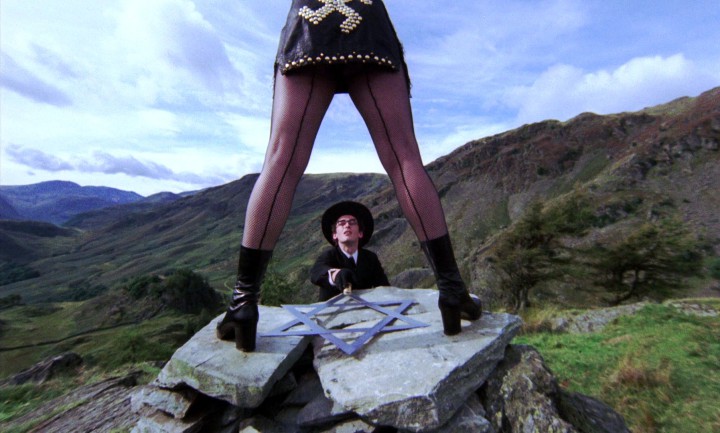
This is a superb introduction and review of my husband’s film. Ken Russell was always grateful to you, Ken, for your uniquely all-encompassing, accurate and intuitive insights into his films. You always made him feel understood, given that his visionary, unique and sensory-saturated style was partly designed to give people an experience of. . . well, speechlessness. Ken Russell, as actor William Hurt told me, knew more classical music than any one he’d ever met. England’s music community embraced him. My husband felt a debt to certain composers, Mahler foremost, who he felt made sense of his own contradictory and passionate engagement with life, love and the creative process. Ken Russell powerfully shows “genius” as something that struggles to be born in spite of sometimes torturous character flaws, not because of the lack of them. MAHLER tackles the hard questions of innocence lost and high inspiration sought without sacrificing the shocking wit and satire that made my husband such an astonishing filmmaker.
Thank you. It’s absolutely impossible to do a film like Mahler anything like justice in this limited space, but hopefully I caught something of the film.
I look forward to seeing you and the film Wednesday night!
The film holds up better than I do.
Ha! You’re a different kind of masterpiece.
I will, I think, merely accept that with gratitude — and a degree of bafflement.
I only meant you were not made of celluloid, in spite of knowing more about it than most anyone.
It was the masterpiece that I questioned!
Ken
Should one arrive early to get a seat for this one?
One of my favorites by Russell … and one of my fav composers.
KC
That’s such a crap shoot. I never can predict these things. Films I thought would be packed — like 2001 — were only half filled, and films I figured we’d be lucky to break even on — like Tess — we were crowded. I think you’ll be okay on Mahler if you get there by 7:15, but I don’t know that. You could probably get there at 7:30 and be okay (we’re in a large theater).
Many thanks.
Looking forward to it.
I’ve been playing all of the pieces from the Film Soundtrack for my girls while we hung out this evening.
http://www.discogs.com/Mahler-Concertgebouw-Orchestra-Amsterdam-Bernard-Haitink-Original-Soundtrack-Album-From-Ken-Russells/release/4790659
KC
Thanks to all those who showed up last night! (Kevin, were you there? I’m sorry, but I don’t know you on sight.) Maybe we’ll do it again next year with The Music Lovers or the massively undervalued Valentino. Also bear in mind that we’ll be screening Ken’s first feature, French Dressing, on Tue., July 7 for his birthday.
I cast my vote for the massively undervalued and less well known VALENTINO.
That’s one for Valentino. Do I hear two?
You do!
Any advance on two?
Having just watched VALENTINO for the first time a few days ago, I’m not sure I could really vote for it against THE MUSIC LOVERS (which is regularly my favorite of Russell’s films and always in the top three), but I also wouldn’t be even slightly upset by the choice. That said, and in case write-ins are being considered, I’d probably rather have the chance to see THE BOY FRIEND on the big screen than either of those two. (That one’s probably relatively undervalued as well, isn’t it?)
Granted, and as Wednesday demonstrated to me in disheartening terms, any plans I have to actually make it to one of these things are apparently doomed to be foiled, so my opinion on the matter should be considered negligible at best.
Of course, write-ins are being considered, and The Boy Friend is a possibility. My biggest qualm with it is that it’s Ken’s longest film and packed onto a DVD-R as it is, the disc occasionally has problems. But I wouldn’t rule it out. One of the things in favor of Valentino is that it’s been a long time since it’s been run here.
I’m sorry you didn’t make it on Wed., but by way of compensation I can offer you Lair of the White Worm on July 2 and Ken’s first feature film French Dressing on July 7. Of course, Lisi won’t be there, and we won’t be in the biggest theater, but in No. 6. Plus side, it’s free.